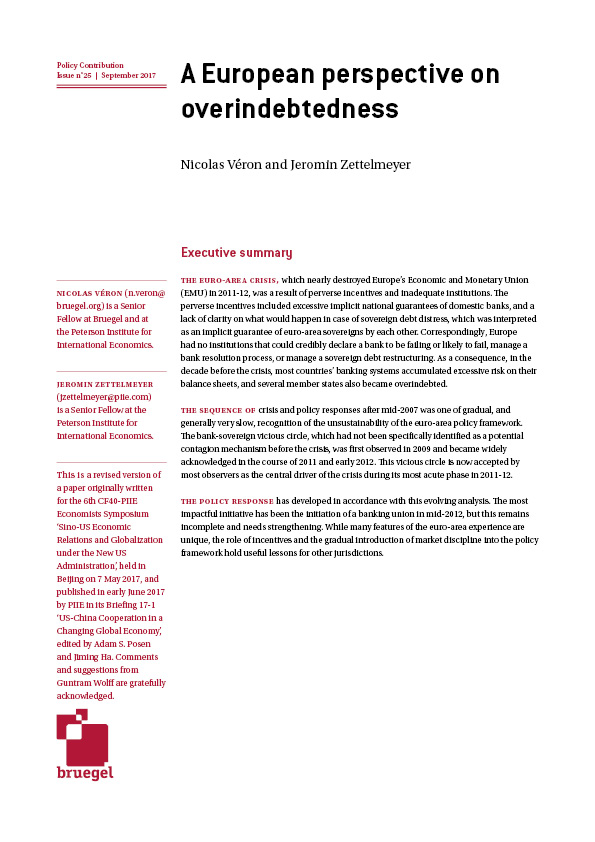Policy Contribution
A European perspective on overindebtedness
The sequence of crisis and policy responses after mid-2007 was a gradual recognition of the unsustainability of the euro-area policy framework. The bank-sovereign vicious circle was first observed in 2009 and became widely acknowledged in the course of 2011 and early 2012. The most impactful initiative has been the initiation of a banking union in mid-2012, but this remains incomplete and needs strengthening.
The euro-area crisis, which nearly destroyed Europe’s Economic and Monetary Union (EMU) in 2011-12, was a result of perverse incentives and inadequate institutions. The perverse incentives included excessive implicit national guarantees of domestic banks, and a lack of clarity on what would happen in case of sovereign debt distress, which was interpreted as an implicit guarantee of euro-area sovereigns by each other. Correspondingly, Europe had no institutions that could credibly declare a bank to be failing or likely to fail, manage a bank resolution process, or manage a sovereign debt restructuring. As a consequence, in the decade before the crisis, most countries’ banking systems accumulated excessive risk on their balance sheets, and several member states also became overindebted.
The sequence of crisis and policy responses after mid-2007 was one of gradual, and generally very slow, recognition of the unsustainability of the euro-area policy framework. The bank-sovereign vicious circle, which had not been specifically identified as a potential contagion mechanism before the crisis, was first observed in 2009 and became widely acknowledged in the course of 2011 and early 2012. This vicious circle is now accepted by most observers as the central driver of the crisis during its most acute phase in 2011-12.
The policy response has developed in accordance with this evolving analysis. The most impactful initiative has been the initiation of a banking union in mid-2012, but this remains incomplete and needs strengthening. While many features of the euro-area experience are unique, the role of incentives and the gradual introduction of market discipline into the policy framework hold useful lessons for other jurisdictions.












